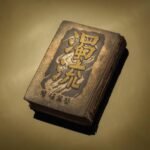(Graphics by Dongbeom Yun with file photos by Dae-cheol Lim and MK Group)
South Korea’s premium ride-hailing app i.M joined hands with Japan’s taxi operator MK Group to allow customers of each platform to use both services, aiming to expand its business into the global market starting from the neighboring country.
Jinmobility Inc., the operator of premium i.M van taxis in the Seoul capital area, said on Tuesday it formed a partnership with MK Group, which provides taxi services in eight Japanese cities including Tokyo, Osaka and Kyoto.
The two companies agreed to jointly develop and operate new taxi services. Users of the i.M app are expected to hail MK taxis in Japan, while users of the MK app are predicted to call for i.M taxis in South Korea, for example, through the partnership.
Jinmobility and MK are also set to work on other projects such as airport shuttle services, city tour guides and taxi service expansion.
That came as South Korean tourists to Japan increased amid a weaker yen and Japanese visitors to the neighbor grew.
The South Korean company plans to partner with other overseas mobility service operators, especially in Southeast Asia.
“About 2.3 million Japanese visited Korea last year alone, while tourists from other regions such as Southeast Asia and Europe are growing,” said a Jinmobility official. “We aim to help tourists enjoy i.M taxis through local platforms they use at home.”
By Joo-Wan Kim
kjwan@hankyung.com
Jongwoo Cheon edited this article.














